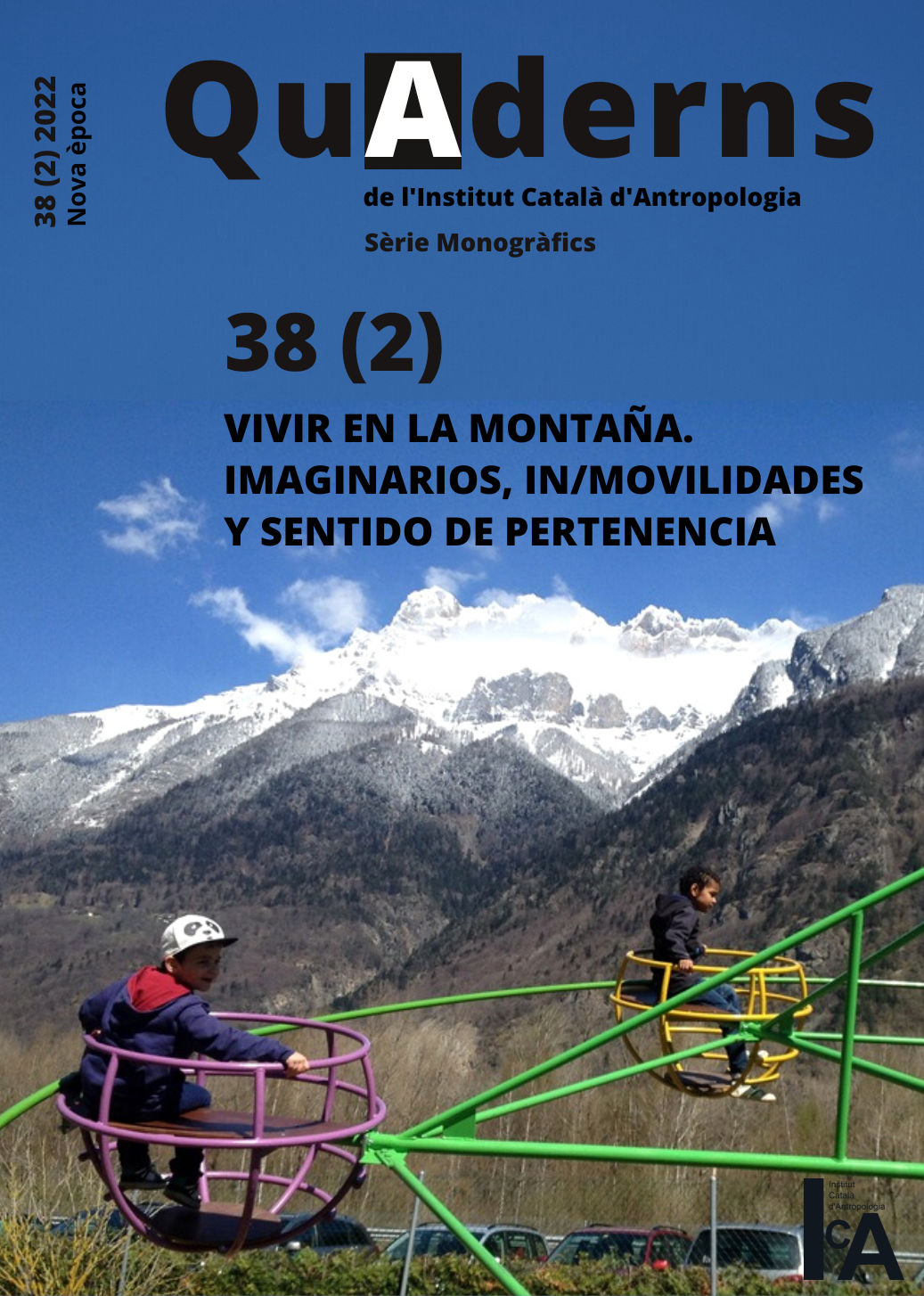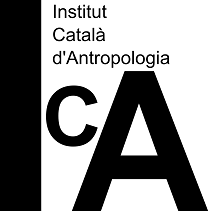Visiones románticas sobre el pueblo: turismo, nacionalismo, localidad y políticas de (no)pertenencia en los Alpes suizos
DOI:
https://doi.org/10.56247/qua.414Palabras clave:
Alpes suizos, Romanticismo, globalización, turismo, (no)pertenenciasResumen
A partir del siglo XVIII, los autores románticos llegaron a los Alpes para encontrarse con lo que describieron como lo Sublime: una deliciosa forma de “horror”. Los Alpes se convirtieron en un refugio en los márgenes de la civilización donde los valores rurales, agrícolas y auténticos “todavía” marcaban la vida, en comparación con la vida decadente de los centros urbanos de Europa. Basándome en trece meses de trabajo de campo en la estación turística de Grindelwald en los Alpes Suizos, en este artículo propongo rastrear el desarrollo histórico del pueblo alpino y su conexión con las sensibilidades románticas entre el pasado y el presente. En primer lugar, trazo los vínculos genealógicos entre el escenario alpino y los imaginarios románticos en los procesos de turistificación y construcción del Estado-nación. En la segunda parte del artículo, vuelvo al presente para interrogar las experiencias de los habitantes de Grindelwald. Mi intención es mostrar cómo las visiones románticas de pertenencia arraigada y la diferencia cultural configuran sentimientos de alienación cultural y la reafirmación de políticas desiguales de (no)pertenencia que diferencian a los habitantes locales, nacionales y extranjeros.
Descargas
Estadísticas globales ℹ️
|
504
Visualizaciones
|
591
Descargas
|
|
1095
Total
|
|
Citas
Appadurai, A. (1996). Modernity At Large: Cultural Dimensions of Globalization (Vol. 1). University of Minnesota Press.
Audikana, A., & Kaufmann, V. (2022). Towards Green Populism? Right‐Wing Populism and Metropolization in Switzerland. International Journal of Urban and Regional Research, 46(1), 136-156. DOI: https://doi.org/10.1111/1468-2427.13011
Baum, T. (2007). Human Resources in Tourism: Still Waiting for Change. Tourism management, 28(6), 1383-1399. DOI: https://doi.org/10.1016/j.tourman.2007.04.005
Bendix, R. (1992). National Sentiment in the Enactment and Discourse of Swiss Political Ritual. American Ethnologist, 19(4), 768-790. DOI: https://doi.org/10.1525/ae.1992.19.4.02a00080
Boscoboinik, A., & Cretton, V. (2017). ‘Find Your Nature’ in the Swiss Alps. In Search of a Better Life in the Mountains. Český lid, 104, 199–212. DOI: https://doi.org/10.21104/CL.2017.2.02
Caramani, D., & Mény, Y. (2005). Challenges to Consensual Politics: Democracy, Identity, and Populist Protest in the Alpine Region. Peter Lang.
Cretton, V., Boscoboinik, A., & Friedli, A. (2020). À L’aise, Ici Et Ailleurs. Mobilités Multirésidentielles En Zone De Montagne: Le Cas De Verbier En Suisse. Anthropologie et sociétés, 44(2), 107-126. DOI: https://doi.org/10.7202/1075681ar
de Capitani, F. (2010). Peuple Des Bergers. Dictionaire Historique de la Suisse.
De Genova, N. (2016). The ‘Native’s Point of View’in the Anthropology of Migration. Anthropological Theory, 16(2-3), 227-240. DOI: https://doi.org/10.1177/1463499616652513
Debarbieux, B. (2018). How Can One Be a ‘Montagnard’? Social and Political Expressions of Modern Imaginaries of Territoriality. In Mountains, Mobilities and Movement (pp. 129-153). Springer. DOI: https://doi.org/10.1057/978-1-137-58635-3_7
Debarbieux, B., Del Biaggio, C., & Petite, M. (2008). Spatialités Et Territorialités Du Tourisme. Dialectique Du Flux Et De L’ancrage Dans Les Alpes. Civilisations. Revue Internationale d’Anthropologie et de Sciences Humaines, 57, 75-89. DOI: https://doi.org/10.4000/civilisations.1085
Flückiger-Seiler, R. (2019). Vom «Little Châlet Inn» Zum «Royal Hotel Winter Palace» : Streiflichter Zur Hotel- Und Tourismusgeschichte Im Berner Oberland Bis Zum Ersten Weltkrieg. In A. Hüssy & Q. Reichen (Eds.), Die Grosse Welt Kommt in Die Berge: Die Entstehung Des Tourismus Im Berner Oberland (Vol. Sonderausgabe der Berner Zeitschrift für Geschichte in Kooperation mit der Stiftung Schloss Spiez, pp. 123-146). Baden
Friedli, A. (2020a). Les Nouveaux Montagnards. Négociations Des Identités Locales En Zone De Montagnes In L. Gwiazdzinski, M. Colleoni, F. Cholat, & L. Daconto (Eds.), Vivere La Montagna. Abitanti, Attività E Strategie. (Vol. Sociologia del Territorio, pp. 38-45). Milano.
Friedli, A. (2020b). Living in the Mountains: Mobilities, Forms of Residentiality and Local Identities of New Inhabitants of a Swiss Ski Resort. Via. Tourism Review,18. DOI: https://doi.org/10.4000/viatourism.5792
Hausheer, R. (2013). Introduction. In H. Hardy (Ed.), Isahia Berlin: Against the Current (pp. xxxi-lxxxiii). Princeton University Press. DOI: https://doi.org/10.1515/9781400843237-005
Heady, P. (1999). The Hard People: Rivalry, Sympathy and Social Structure in an Alpine Valley: Taylor & Francis.
Hochschild, A. R. (2018). Strangers in Their Own Land: Anger and Mourning on the American Right. The New Press.
Holenstein, A., Kury, P., & Schulz, K. (2018). Schweizer Migrationsgeschichte: Von Den Anfängen Bis Zur Gegenwart. Hier und Jetzt, Verlag für Kultur und Geschichte.
Holmes, D. R. (2000). Integral Europe: Fast-Capitalism, Multiculturalism, Neofascism. Princeton University Press.
Imhof, K. (2006). Sonderfall Schweiz. Schweizerische Zeitschrift für Soziologie= Revue Suisse de Sociologie= Swiss Journal of Sociology, 32(2), 197-223.
Kreis, G. (2011). Nation. Dictionaire Historique de la Suisse.
Kuhn, K. (2019). Unsichtbare Dienste Und Schmutzige Wäsche: Zu Arbeitswelt Und Lebenssituation Von Zimmermädchen. In A. L. Timo Heimerdinger, Evelyn Reso (Ed.), Hotelpersonal – Lebens- Und Arbeitsalltag Im Dienste Des Tourismus. (pp. 295-313). Innsbruck Studien-Verlag.
Leimgruber, W. (2012). Volkskunde/Kulturanthropologie: Zum Stand Der Forschung in Der Schweiz. Traverse, 119-147.
Leimgruber, W. (2019). Constructing a Home. Heimat as Expression of Privilege, Belonging, Exclusion, and Identity. Journal for European Ethnology and Cultural Analysis, 1, 142-167.
Leitenberg, D. (2021). In and Out of Time: Tourism, Belonging and Inequality in the Swiss Alps. (Doctorate Dissertation). University of Berne, Institue for Social Anthropology.
Lems, A. (2016). Ambiguous Longings: Nostalgia as the Interplay among Self, Time and World. Critique of Anthropology, 36(4), 419-438. DOI: https://doi.org/10.1177/0308275X16654549
MacCannell, D. (2013). The Tourist : A New Theory of the Leisure Class. University of California Press.
Marchal, G. P., & Mattioli, A. (1992). Erfundene Schweiz: Konstruktionen Nationaler Identität. Chronos.
Mathieu, J., & Boscani Leoni, S. (2005). Die Alpen! : Zur Europäischen Wahrnehmungsgeschichte Seit Der Renaissance = Les Alpes! : Pour Une Histoire De La Perception Européenne Depuis La Renaissance (1. Aufl. ed. Vol. 2). Peter Lang.
Miller, P. (2013). Nature’s Nation. Harvard University Press.
Moser, P. (1997). "So Wird Die Jungfrau Zur Demoiselle Gemacht": Projektierung Und Bau Der Jungfraubahn. Chronos.
Netting, R. M. (1981). Balancing on an Alp: Ecological Change and Continuity in a Swiss Mountain Community. Cambridge University Press.
Nöbauer, H. (2021). Weather, Agency and Values at Work in a Glacier Ski Resort in Austria. In P. Sillitoe (Ed.), The Anthropocene of Weather and Climate: Ethnographic Contributions to the Climate Change Debate. Berghahn. DOI: https://doi.org/10.1515/9781800732322-008
Pfau, T., & Mitchell, R. (2011). Romanticism and Modernity. Routledge.
Pratt, M. L. (1991). Arts of the Contact Zone. Profession, 33-40.
Purtschert, P. (2013). Jenseits Des Réduit: Die Schweiz Und Die Berge in Zeiten Der Dekolonisierung. Schweizerische Zeitschrift für Geschichte, 2(63), 250-268.
Purtschert, P. (2019). Kolonialität Und Geschlecht Im 20. Jahrhundert: Eine Geschichte Der Weissen Schweiz. Transcript-Verlag. DOI: https://doi.org/10.1515/9783839444108
Descargas
Publicado
Cómo citar
Número
Sección
Licencia
Distribuït sota els termes de la llicència d’ús i distribució Creative Commons Reconeixement 4.0 Internacional (CC BY-NC-SA 4.0)




